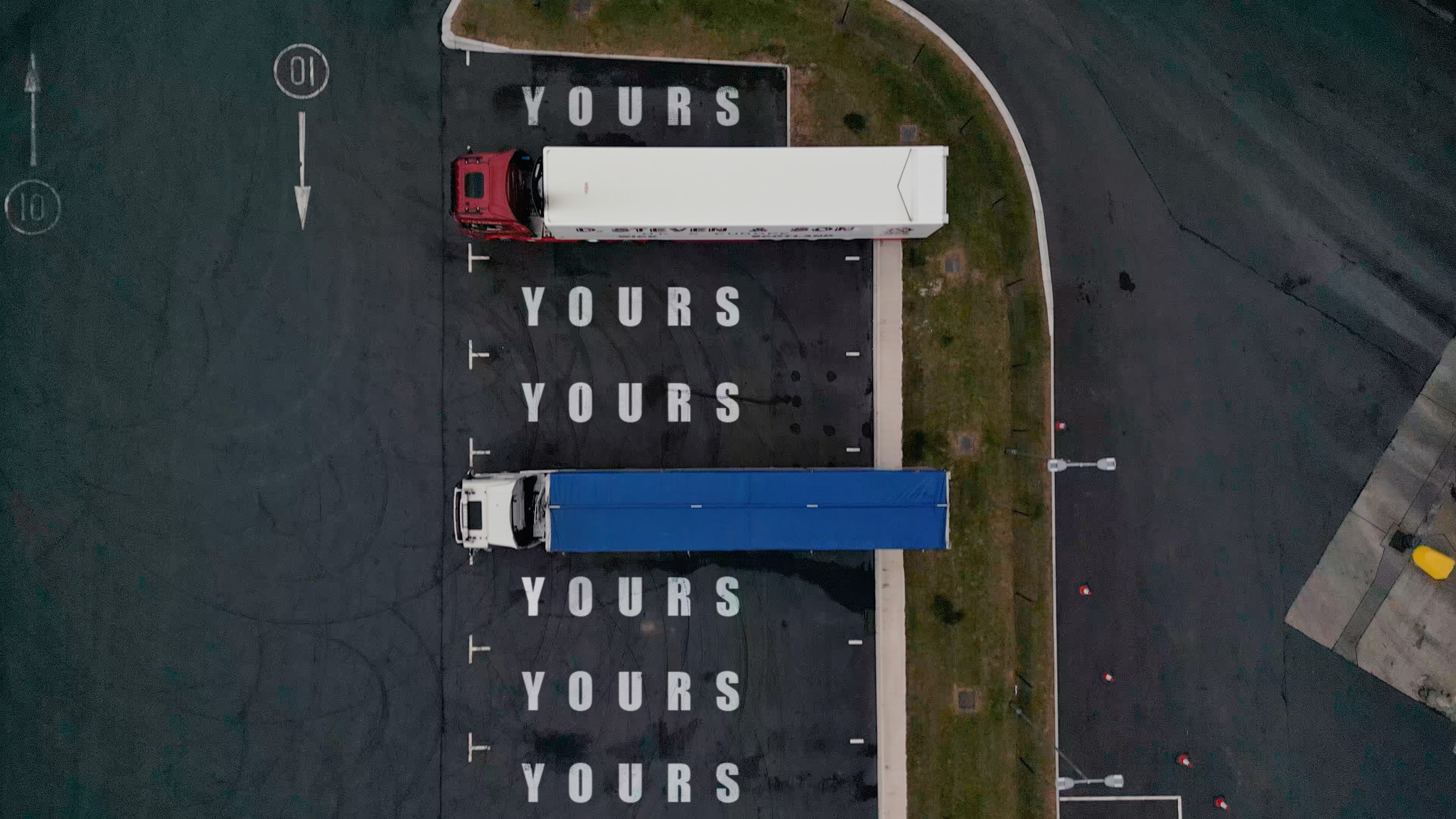
Miranda Blake
Uitdagingen en oplossingen voor modern transportmanagement
Gemaakt: 16-12-2024
•
Bijgewerkt: 16-12-2024
Modern transportmanagement is een strategische benadering van het plannen, organiseren en controleren van de efficiënte en effectieve verplaatsing van goederen en materialen van herkomst naar bestemming. Hierbij worden technologie en datagestuurde inzichten gebruikt om transportprocessen te optimaliseren, kosten te verlagen en klanttevredenheid te verhogen.
In deze blog verkennen we de belangrijkste uitdagingen en oplossingen op dit gebied.
Belangrijkste uitdagingen
Een van de meest dringende zaken waarmee wagenparken te maken hebben, is het beheer van brandstofkosten. Deze maken een aanzienlijk deel uit van de operationele uitgaven en de volatiliteit ervan kan een ravage aanrichten in de budgetteringsprocessen en de algehele winstgevendheid. De onvoorspelbare aard van brandstofprijzen creëert een rimpeleffect door de hele toeleveringsketen en dwingt bedrijven om moeilijke beslissingen te nemen over kostenabsorptie of prijsverhogingen, wat hun concurrentievermogen kan aantasten. Vooruitstrevende bedrijven passen echter strategieën toe om de bijbehorende risico's te beperken:
Het afsluiten van brandstofafdekkingscontracten om de prijzen voor een bepaalde periode vast te zetten en zo de uitgaven te stabiliseren
Investeren in moderne, zuinige voertuigen om het verbruik te verminderen en de totale kosten te verlagen
Het onderzoeken van alternatieve brandstofbronnen, zoals biodiesel of gecomprimeerd aardgas, als buffer tegen traditionele brandstofprijsschommelingen
Een van de oplossingen - SNAP Fuel - maakt naadloos brandstofbeheer mogelijk:
Wagenparkbeheerders hebben toegang tot gedetailleerde rapporten over uitgaven, die kostentransparantie bieden en hen helpen trends en gebieden voor verbetering te identificeren.
Door samen te werken met Certas Energy hebben gebruikers toegang tot brandstoftarieven** met korting, wat de uitgaven verder verlaagt.
Verkeersopstoppingen
Een ander probleem is het verkeer. Naarmate de stedelijke bevolking groeit, neemt de druk op de bestaande infrastructuur toe, wat leidt tot problemen in de hele logistieke keten. Vertragingen zijn aan de orde van de dag, het brandstofverbruik schiet omhoog en de operationele kosten stijgen, terwijl de klanttevredenheid daalt door de langere levertijden.
Er zijn verschillende tactieken om de negatieve gevolgen hiervan tegen te gaan:
Het gebruik van geavanceerde routeoptimalisatie software kan helpen bij het identificeren van de meest efficiënte paden, waardoor reistijd en brandstofverbruik worden verminderd.
Het integreren van real-time verkeersgegevens in de operaties kan dynamische routeaanpassingen mogelijk maken op basis van de huidige omstandigheden.
Het ontwikkelen van stadslogistieke plannen op maat kan bedrijven helpen bij het omgaan met stadsspecifieke uitdagingen, zoals zones met beperkte toegang en spitsuren.
Verstoringen in de toeleveringsketen
Van natuurrampen tot geopolitieke gebeurtenissen tot tekorten aan arbeidskrachten, onderbrekingen zijn een andere kwestie waar vloten mee te maken krijgen - wat leidt tot vertragingen, hogere kosten en verminderde serviceniveaus, waardoor de veerkracht van transportmanagementsystemen op de proef wordt gesteld.
Om dergelijke onderbrekingen aan te pakken, kunnen organisaties verschillende strategieën toepassen:
** Diversificatie: Het betrekken van materialen en diensten van meerdere leveranciers kan de afhankelijkheid van één leverancier verminderen en risico's beperken.
Risicobeoordelingen: Door deze regelmatig uit te voeren, kunnen kwetsbaarheden binnen de toeleveringsketen worden geïdentificeerd en kan de noodplanning worden ondersteund.
Live monitoring: Het inzetten van technologieën die real-time inzicht geven in de toeleveringsketen kan het reactievermogen verbeteren en de besluitvorming versnellen.
Bestuurder die technologie gebruikt] (https://prodsnapstorage.blob.core.windows.net/public-news/2efaac06-0c59-493a-bd63-032480ada402-Driver%20using%20technology.jpg)
Innovatieve oplossingen
Naarmate technologieën zich blijven ontwikkelen en integreren, beloven ze de toekomst van transportmanagement een nieuwe vorm te geven, waarbij al lang bestaande problemen worden aangepakt en nieuwe mogelijkheden voor groei en innovatie worden gecreëerd.
* * Voertuigvolgsystemen geven realtime gegevens over locatie, routeoptimalisatie en rijgedrag, waardoor beter geïnformeerde beslissingen kunnen worden genomen.
IoT-apparaten: Deze kunnen de gezondheid van het voertuig, het brandstofverbruik en de laadomstandigheden bewaken en zo zorgen voor optimale prestaties en veiligheid.
** AI en machine learning: Hiermee kun je voorspellende analyses en vraagvoorspellingen doen, waardoor routeoptimalisatie en voorraadbeheer worden verbeterd.
Blockchain: Het implementeren van deze technologie kan de transparantie, veiligheid en traceerbaarheid van de toeleveringsketen verbeteren en het vertrouwen tussen belanghebbenden bevorderen.
Behoud en opleiding van chauffeurs
Het chauffeurstekort is een andere uitdaging van transportmanagement, die het Department for Transport probeert op te lossen door een raadpleging te starten over manieren om het tekort op te lossen. We vroegen truckers om hun mening over het voorstel te geven op de SNAP Facebook pagina. Hoewel velen geen commentaar gaven op de regeling, bestempelde 72,5% de term 'chauffeurstekort' als paniekzaaierij. In plaats daarvan noemden ze verschillende redenen waarom ervaren vrachtwagenchauffeurs de sector verlaten.
Daarom blijft het aantrekken en behouden van vakkundige chauffeurs van groot belang. De overheid heeft verschillende maatregelen geïntroduceerd, maar wagenparkbeheerders en truckers kunnen zelf ook stappen ondernemen:
Competitieve compensatie en voordelen: Het aanbieden van aantrekkelijke pakketten kan helpen om toptalent te lokken in een concurrerende arbeidsmarkt.
Flexibele werkregelingen: Door deze aan te bieden kan de werktevredenheid toenemen en het personeelsverloop afnemen.
Verdergaande training en ontwikkeling van vaardigheden: Door te investeren in doorlopende programma's kunnen chauffeurs worden uitgerust met de capaciteiten die nodig zijn om uit te blinken in hun functie en zich aan te passen aan nieuwe technologieën.
Een andere belangrijke manier om chauffeurs vast te houden is om hun werk zo makkelijk mogelijk te maken - en dat omvat ook het betalen voor parkeren en wassen. Gelukkig is er SNAP.
Steun krijgen van SNAP
Neem voor meer informatie over onze diensten en hoe ze kunnen helpen bij transportmanagement contact op door te bellen naar +44 (0)1603 777242.


